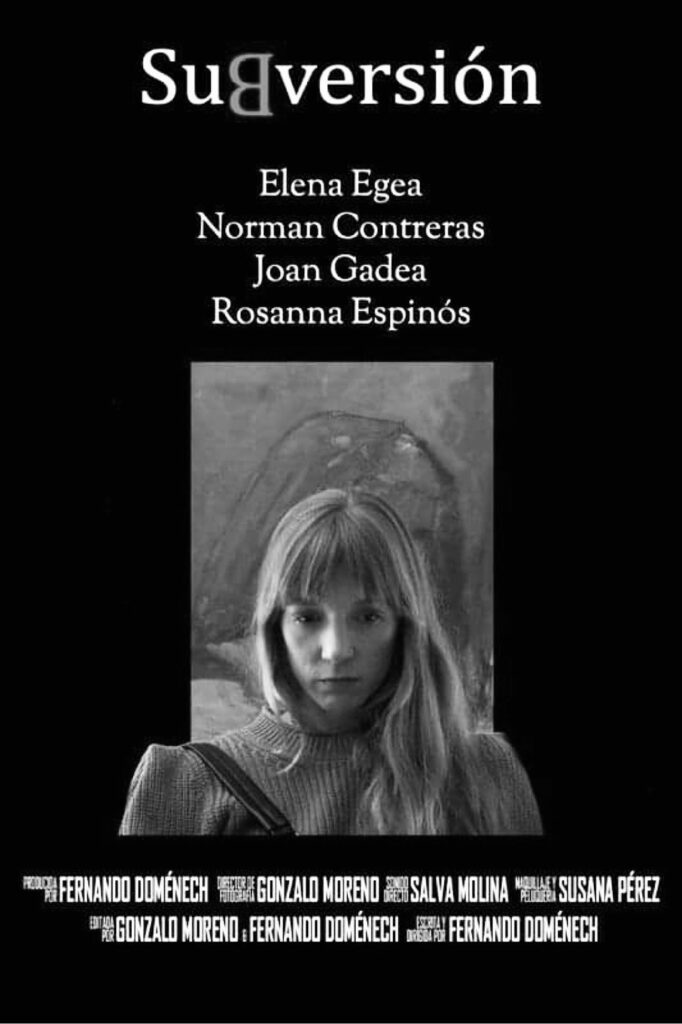
-Who is Fernando Doménech Miró?
l’m one of those crazy people who navigates around with a camera, two lights, a recorder and practically no budget. Although what we do may be totally irrelevant to people and the film industry, I feel
very good on the margins. I guess over time I might get over it and 1’11 submit a project to Netflix that they won’t even read, but for now l’m happy telling the stories I want to tell with the means I
have and with the people I can count on to do it.
-What inspired you to become a filmmaker?
lt’s a very difficult question because the truth is that I don’t even remember it. What I am clear about is that this inspiration didn’t even come to me like the majority of film directors of my generation who say that when they were little they spent all day watching space movies, horror movies, westerns… and they said to themselves, I want to make this. l’m not even a big movie buff, I haven’t seen all the movies I should see nor have I spent my childhood at the video store. I really like the movies that I like,
without more. I think my attraction to cinema carne a little later. I seem to remember that a series on ltalian neorealism that was broadcast on television when I was 12 or 13 years old was what gave me
that impulse to want to make films. 1 discovered through those films that cinema was not an instrument that only served to entertain us with stories of the good guys, the bad guys, the girl and things that
explode against the 1 have nothing and I like them too, but through it we could tell stories that talk about normal people in certain contexts of our history, which are the that really interest me.

-Do you think the cinema can bring a change in the society?
Obviously not. Maybe it can serve to make people aware of certain problems or make us see the world from other points of view than our own and that makes us think. But when the movie ends, the viewer is the same as he was befare watching it and society continues to be governed by the same values: Money and power. 1 hope to be wrong.
-What would you change in the world?
What question! I’ll start at the beginning. There are many things that we would all like to change and in my opinion they all stem from the same problem of inequality, if we were all born with the same
opportunities I think the world would be better, at least fairer. But the balance is already unbalanced from the start, perhaps because all people are not equal, sorne are stronger, others more intelligent,
others were born in countries with more natural resources…
I think that if I could change something I would change the future, it’s very scary.

-Where do you see the film industry going in the next 100 years?
Everything indicates that the future of the film industry will be conditioned by new technologies.
On the one hand, platforms and the internet in general are putting an end to traditional movie theaters, which I don’t know if they will end up disappearing or will be reinvented by taking advantage of technology with sensory, holographic, multidimensional projections… that make the viewer recover.
On the other hand, we are witnessing the birth of artificial intelligence that is already being applied to the film sector and that will be increasingly used. In short, I see a film industry in which a bad computer scientist is going to be more important than an excellent cinematographer. We will have to start studying computer science in case we are not still alive in 100 years.

